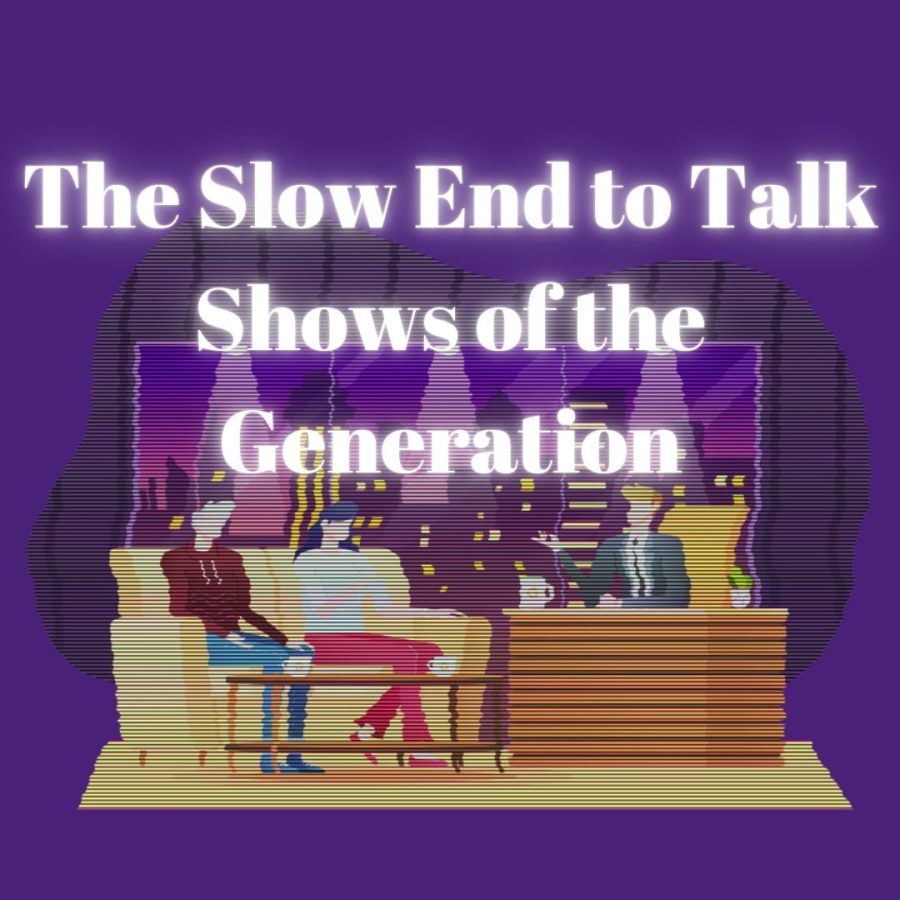The Slow End To Talk Shows of The Generation
May 21, 2022
For decades, talk shows have dominated the media and have captured generations of viewers. Introduced in the late 1940s to the 1950s with the first talk show hosted by Joe Franklin, talk shows have been a source of knowledge and entertainment as a result of the wide range of topics and personalities they feature. However, as the years pass, talk shows are beginning to become a thing of the past, as famous shows like “The Ellen DeGeneres Show” and “The Late Late Show with James Corden” are slowly coming to an end.
On May 26, after 19 seasons over the span of almost 20 years, DeGeneres announced that she would be ending “The Ellen Show,” dubbing her last season the “farewell season.”
DeGeneres claims she is ending her show to pursue other creative endeavors, stating that she wants a “creative challenge and something new” and does not feel like her long-running show serves that purpose anymore. This news comes 10 years after the show was accused of fostering a toxic work environment. However, DeGeneres has since denied these accusations, stating they are not the reason for her departure from the show.
On a similar note, “Late Late Show” host James Corden announced that he would be leaving the show in 2023 after seven years. Famous for his “Carpool Karaoke” and “Crosswalk Musical” segments, Corden has made a name for himself in the entertainment industry and has also doubled as an actor in various films and T.V. shows such as “Cats,” “Into The Woods,” “Trolls” and “Oceans Eight.” Similar to DeGeneres, Corden is ending his show to pursue bigger artistic endeavors.
With two of the biggest names in talk show history announcing their resignation, it calls into question the future of talk shows. Last year, in 2021, “The Late Night Show” host Conan O’Brien waved farewell to the show. Now, in 2022, a similar pattern is emerging.












